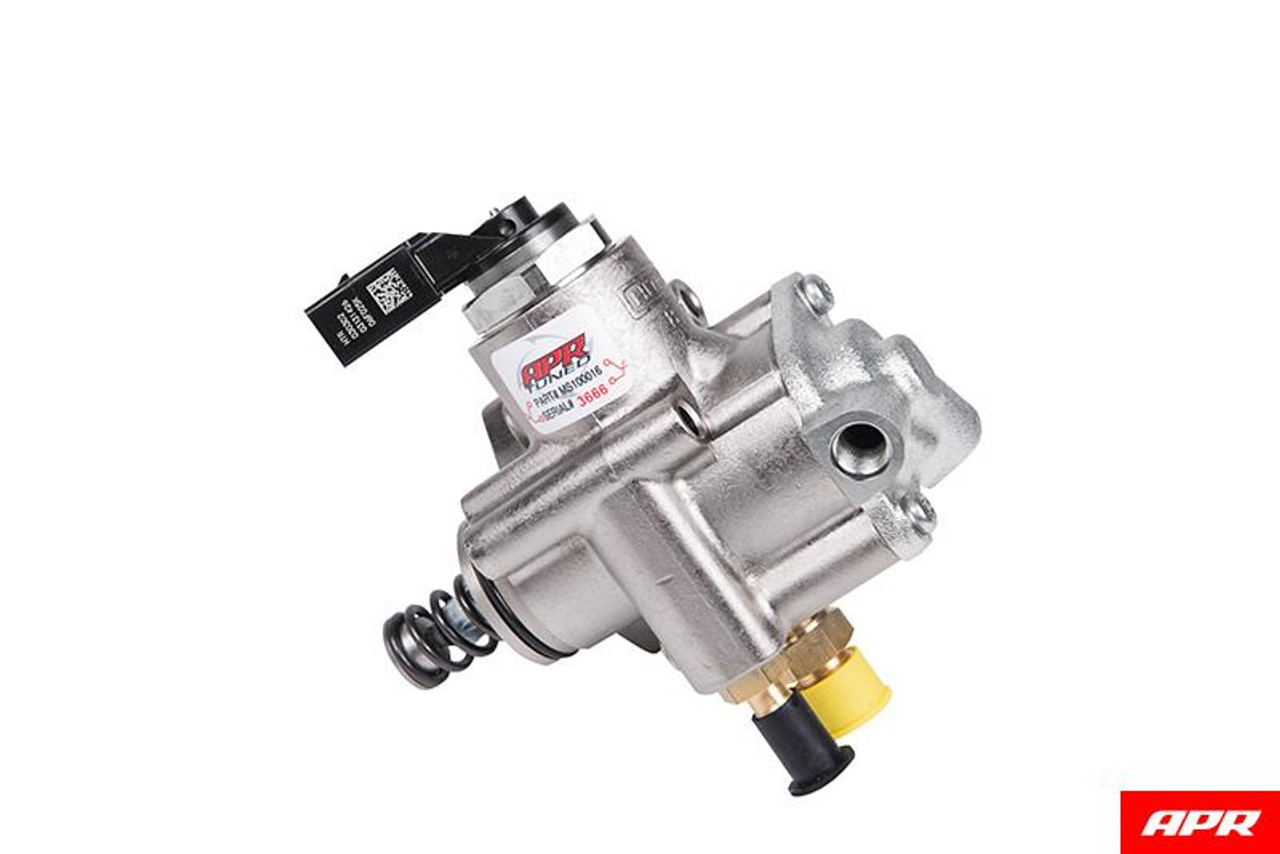Product Description
Modification of the 2.0T FSI engine far beyond OEM power levels requires an additional volume of high-pressure fuel especially in the midrange (3000-5000rpm) of the powerband. To understand why this fuel is needed for the midrange, one must first understand how the fuel delivery system works in the 2.0T FSI.
A low pressure fuel pump, which varies from ~40-95psi, delivers fuel from the gas tank to the high pressure fuel pump. Then the high pressure, camshaft driven pump pressurizes the fuel to upwards of 130bar (almost 1900psi!) in order to spray fuel directly into the combustion chamber. Unfortunately on cars that have many modifications, the stock fuel pump cannot flow enough volume of fuel to maintain the system pressure and the car suffers from the familiar "fuel cut" that so many modified customers experience.
The limitation of how much volume of fuel the high pressure pump can flow is dependent upon the volume displaced by the pressurizing cylinder inside the pump and the number of times the piston reciprocates inside that cylinder. Since the high pressure pump is driven off of the engine camshaft by a three lobe cam the piston of the pump cycles at 1.5 times the engine rpm. (Engine camshaft turns at one-half engine rpm multiplied by three for the number of lobes on the high pressure cam lobe).
Due to this dependency on engine rpm for the high pressure fuel pump output volume, the FSI pump is capable of flowing almost 370hp at 7000 rpm but only 158hp at 3000rpm. The graph below illustrates the maximum horsepower potential of the stock fuel pump compared to the APR FSI fuel pump. Also on the graph are stock and APR Stage III horsepower numbers. Clearly, the stock pump is insufficient for the output generated by this upgraded kit. The only way to address this issue while maintaining a pump that fits in the stock location is to change the volume of the pump's internal pressurization chamber.












